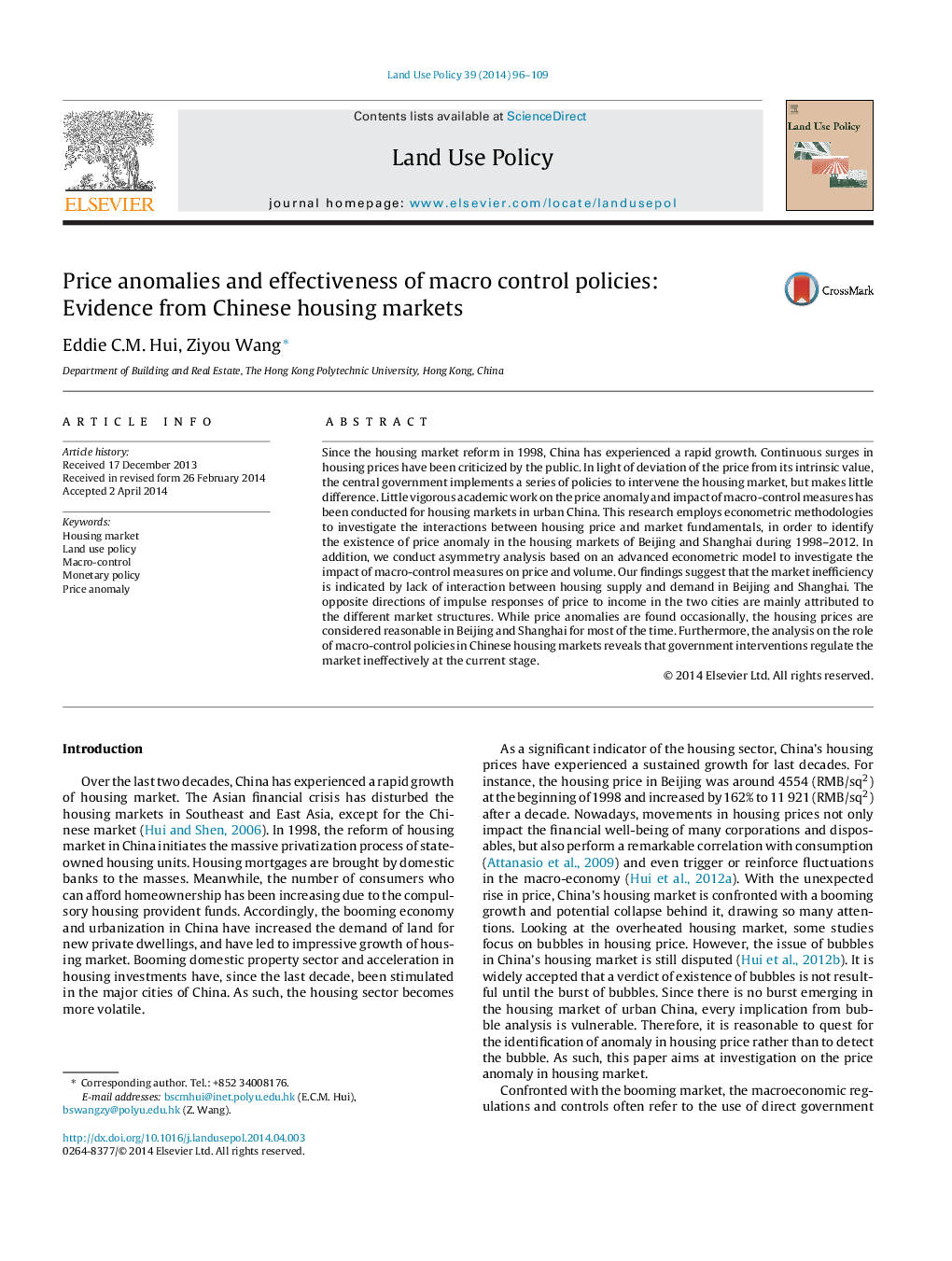| Article ID | Journal | Published Year | Pages | File Type |
|---|---|---|---|---|
| 6548587 | Land Use Policy | 2014 | 14 Pages |
Abstract
Since the housing market reform in 1998, China has experienced a rapid growth. Continuous surges in housing prices have been criticized by the public. In light of deviation of the price from its intrinsic value, the central government implements a series of policies to intervene the housing market, but makes little difference. Little vigorous academic work on the price anomaly and impact of macro-control measures has been conducted for housing markets in urban China. This research employs econometric methodologies to investigate the interactions between housing price and market fundamentals, in order to identify the existence of price anomaly in the housing markets of Beijing and Shanghai during 1998-2012. In addition, we conduct asymmetry analysis based on an advanced econometric model to investigate the impact of macro-control measures on price and volume. Our findings suggest that the market inefficiency is indicated by lack of interaction between housing supply and demand in Beijing and Shanghai. The opposite directions of impulse responses of price to income in the two cities are mainly attributed to the different market structures. While price anomalies are found occasionally, the housing prices are considered reasonable in Beijing and Shanghai for most of the time. Furthermore, the analysis on the role of macro-control policies in Chinese housing markets reveals that government interventions regulate the market ineffectively at the current stage.
Related Topics
Life Sciences
Agricultural and Biological Sciences
Forestry
Authors
Eddie C.M. Hui, Ziyou Wang,
